#Norman conquest
Explore tagged Tumblr posts
Text
My OCs were Irish nobility during the Norman Conquest.
#dream#text#September 12th 2024#oc#original character#ocs#irish#ireland#irish nobility#nobility#norman conquest#normans
335 notes
·
View notes
Text
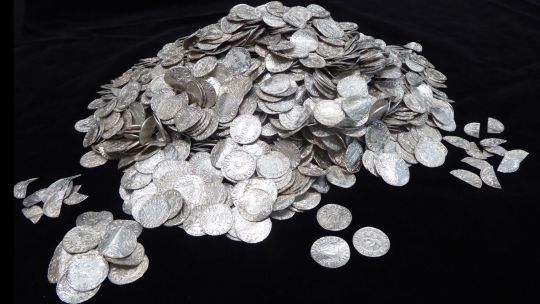
1,000-Year-Old Norman Conquest Coin Hoard Sells for $5.6 Million
A hoard of Norman-era silver coins unearthed five years ago in southwestern England has become Britain’s most valuable treasure find ever, after it was bought for £4.3 million ($5.6 million) by a local heritage trust.
For the group of seven metal detectorists who discovered the 2,584 silver pennies in the Chew Valley area, about 11 miles south of the city of Bristol, it marks a lucrative windfall since they will pocket half that sum. The landowner on whose property the coins were found will receive the other half.
According to South West Heritage Trust, the body that acquired them, the coins date from around 1066-1068, spanning one of the most turbulent periods in English history as the country was successfully invaded for the last time during the Norman Conquest.
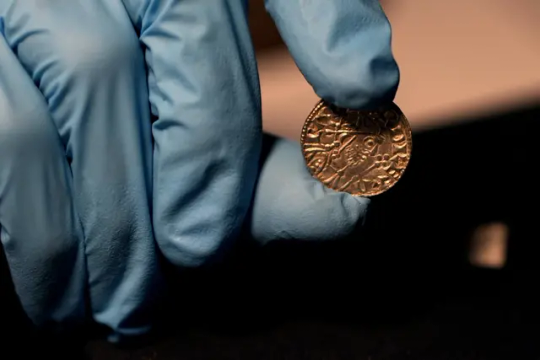
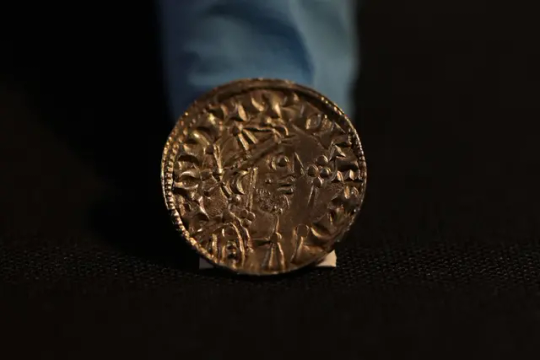
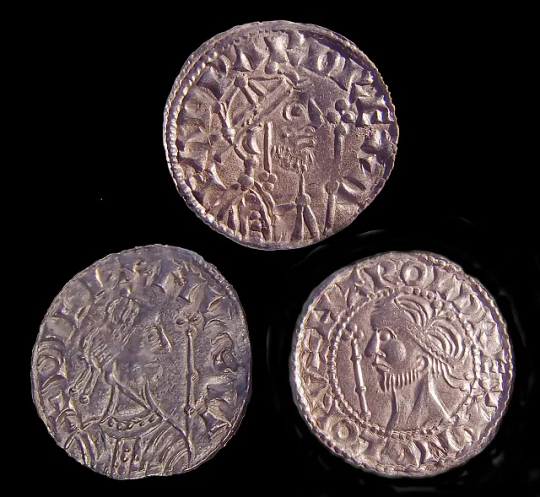
One coin, the oldest in the hoard, depicts King Edward the Confessor, who died childless in January 1066, triggering a period of instability since he had promised the throne to three claimants: Harold Godwinson, Earl of Wessex; Harald Hardrada, King of Norway; and William, Duke of Normandy.
Edward named Harold Godwinson as his successor on his deathbed, but the newly crowned King Harold II faced challenges from the other two claimants to the throne, and he was eventually defeated by William at the Battle of Hastings in October 1066.
The hoard of coins depicts this turmoil as Harold II features on just under half of them while William I (also known as William the Conqueror) features on the rest.
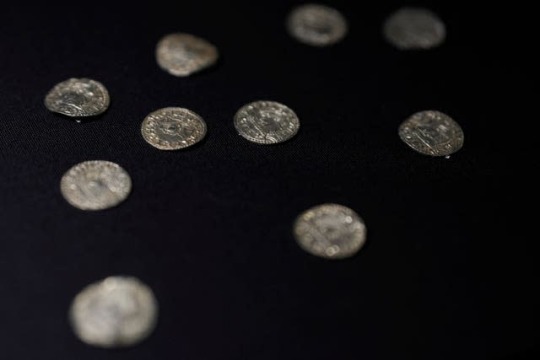
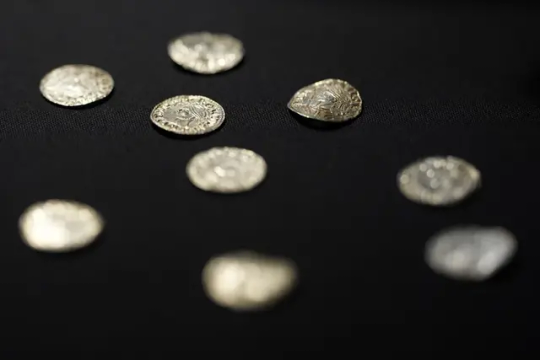
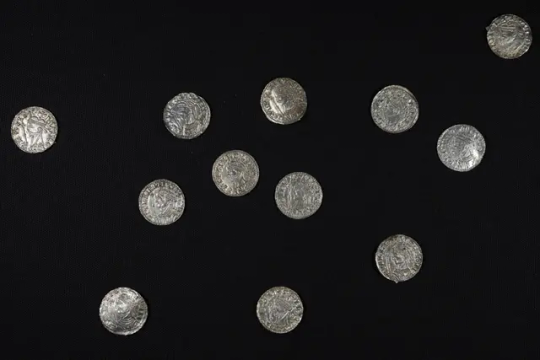
“It comes from a turning point in English history and it encapsulates the change from Saxon to Norman rule,” Amal Khreisheh, curator of archaeology at South West Heritage Trust, said in a video on the organization’s website.
“The hoard was buried in around 1067-1068 on an estate in Chew Valley which later belonged to Giso, the Bishop of Wells. We think it was probably buried for safekeeping during the time of rebellions against William in the South West.
“We know that in 1068, the people of Exeter rebelled against William. At around this time, Harold’s sons returned from exile in Ireland and their forces mounted attacks around the River Avon and then down into Somerset and the Chew Valley,” Khreisheh added.
Finding coins that were in use almost 1,000 years ago is exceptionally rare – this hoard contains twice as many coins from during Harold II’s reign as had previously been found.
The coins will now go on public display at the British Museum in London from November 26, before heading back to museums in southwest England.
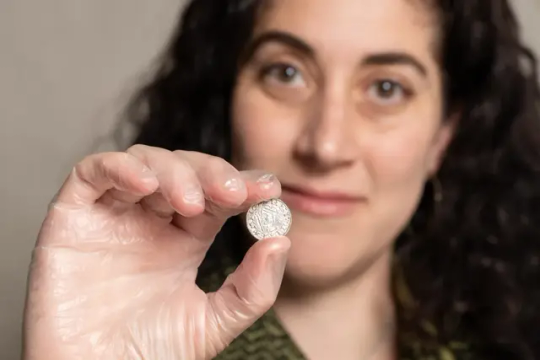
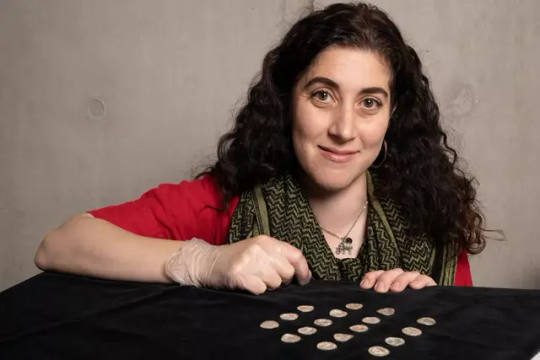
#1000-Year-Old Norman Conquest Coin Hoard Sells for $5.6 Million#Norman Conquest Coin Hoard#Norman Conquest#King Edward the Confessor#King Harold II#William Duke of Normand#William the Conqueror#treasure#silver#silver coins#collectable coins#metal detector#metal detecting finds#ancient artifacts#archeology#archeolgst#history#history news#ancient history#ancient culture#ancient civilizations
197 notes
·
View notes
Text

#history#historical#misconceptions#boer war#ottoman empire#norman conquest#wordplay#phonics#wronghands#john atkinson#webcomic#funny
173 notes
·
View notes
Text

From haircut to wrapped leggings, an accurate Norman knight circa 1066 (Jim Holloway, Dragon magazine 40, August 1980) -- OK the bearded axe is more "Viking," but maybe it's a battlefield trophy, or maybe it belonged to his grandfather.
#D&D#Dungeons & Dragons#Jim Holloway#Dragon magazine#medieval#Norman#Anglo-Norman#1066#Norman conquest#Battle of Hastings#kite shield#nasal helm#battle axe#dnd#Dungeons and Dragons
205 notes
·
View notes
Text

This is most certainly NOT how the Norman Invasion looked like!!! 😞
🤓👆
The Normans were actually mostly Viking descendants, with William himself being a descendant of one such Viking. The French had little to no involvement, and the Duchy of Normandy had been given to the Vikings decades prior.
This is for THOSE anti-frukers that use the arguement of "oh france conquered and raised england so they can't be shipped" like I'm pretty fucking sure Francypants is NOT William I??? The French never really got close to conquering England, despite what they might tell you — Remember, French people are not to be trusted — and, if anything, it was actually England that nearly conquered them!
Overall, I spend too much time researching English history (;´д`)
#(;´д`)#hetalia#aph england#aph france#fruk#for anti-frukers!!_@<!#norman invasion#norman conquest#british history
23 notes
·
View notes
Text
My dealer: got some straight gas this strain is called "the battle of hastings" you'll be zonked out of your gourd
Me: Yeah whatever I don't feel shit
5 minutes later: dude I swear I just saw some normans off the coast
My buddy Ælfric pacing: the king is lying to us
#medievalism#battle of hastings#norman conquest#norman invasion#medieval history#middle ages#william the conqueror#edward the confessor#Bayeux Tapestry#1066#old english
216 notes
·
View notes
Text

#ohhh ueah#william the conqueror#william the bastard#william I of england#king harold II#english history#norman conquest#ermmm what the scallop#artists on tumblr#silly drawing#art#digital illustration#shitpost
22 notes
·
View notes
Text

The last invasion of Britain was the Battle of Hastings, 957 years ago
#Battle of Hastings#17 October 1066#Duke of Normandy#UK#King Harold#King William I#Norman conquest#English history#East Sussex#William the Conqueror#Saxon defeat#On this day
85 notes
·
View notes
Text
18 notes
·
View notes
Text
The True Legacy of Ivar the Boneless: Unraveling some facts from myths. Pt 1. - Aressida. 6.9.24.

Yes, I come from the line of Ivar the Boneless, through my grandmother's father's line. He's my 37th great-grandfather, to be exact, and that is a part of my heritage I hold close.
But what really gets under my skin is how twisted his story has become, especially in modern portrayals. The TV series Vikings? Well, that is an insult, plain and simple.
It makes me sick to see people talk about him as if that version's the truth when it is all just myth.
The way they portrayed Ivar in that series was far from the real man. They painted him as a cripple, dragging himself around like some helpless figure.
Let me set the record straight: Ivar was not a cripple.
He was extremely agile, and according to some accounts, he have double-jointed, which gave him an advantage in battle, moving in ways others could not. He did not just survive, he thrived as a warrior and led thousands of the most savage men, including the infamous Berserker horde.
Now, about that nickname "Boneless", it did not mean he was weak. In some Nordic traditions, "boneless" was used to describe someone with ghost-like abilities, someone who could move without a sound. Think of it as being as "graceful and supple as a serpent." This is not someone dragging themselves across a battlefield, this is a warrior who could strike with speed and precision like no other.
The historical records might be vague and full of metaphor, but to reduce him to a crippled figure is not just wrong. It is disrespectful.
I do know that Ivar's legacy was forged through strength, strategy, and a commanding leadership that inspired both respect and fear. His influence did not end with him, it flowed through his lineage, giving rise to the Montgomery clan, then all the way down to me today.
Generations later, after the Norman Conquest in 1066, Roger de Montgomerie, one of the prominent figures in the Norman invasion, became a key ancestor in this lineage. This distinguished family, known for their own remarkable history, traces its roots directly back to Ivar. The Montgomerys carry forward his legacy of leadership and valor, embodying the qualities that defined their formidable ancestor.
That is the Ivar I know, and the one I proudly call my ancestor.
#aressida#ivar the boneless#bloodline#ancestry#6.9.24#montgomery clan#norman conquest#I can see where this comes from#the way I am#garde bien#vikings#norman knights
16 notes
·
View notes
Video
Wells Cathedral by Roy Llowarch Via Flickr: Wells Cathedral is an Anglican cathedral in Wells, Somerset, England, dedicated to St Andrew the Apostle and seat of the Bishop of Bath and Wells, whose cathedra it holds as mother church of the Diocese of Bath and Wells. Built in 1176–1450 to replace an earlier church on the site since 705, it is moderately sized for an English cathedral. Its broad west front and large central tower are dominant features. It has been called "unquestionably one of the most beautiful" and "most poetic" of English cathedrals
#Wells#Wells Somerset#Wells Cathedral#Wells Cathedral Somerset#Somerset#Somerset England#Medieval#Medieval Architecture#Medieval England#Gothic#Gothic Architecture#Gothic Cathedrals#Architecture#Norman England#Norman Architecture#Norman Conquest#Cathedrals#Cathedral#Anglican#Anglican Church#Church Of England#Churches#Church#Religion#Religious#Travel#Travelling#Staycations#Vacations#Vacation
7 notes
·
View notes
Text
“…The Anglo-Saxon era is often thought of as having been a golden age for women. Since the late eighteenth century, it has been a commonplace that women in England had better rights before the Norman Conquest than they did afterwards, and were held in higher esteem by society. Before 1066, said one eminent historian in the mid-twentieth century, men and women enjoyed ‘a rough and ready partnership’. As so often with golden ages, however, this picture rests on a selective reading of very limited and debatable evidence. One of its principal props is an account of German women written by the Roman historian Tacitus towards the end of the first century AD. These women, claimed Tacitus, were virtuous, frugal and chaste, and supported their sons and husbands by encouraging them to acts of valour. But this was simply a Roman praising ‘barbarian’ society in order to criticize his own. German women were portrayed as laudable because, unlike their Roman counterparts, they did not conduct adulterous affairs or waste their time at baths and theatres. The reality, unfortunately, seems to be that the status of women in first-century Germany and Anglo-Saxon England was no better than it was in later centuries.”
-Marc Morris, "Anglo-Saxons: The History of the Beginnings of England, 400-1066” / Pauline Stafford, "Women and the Norman Conquest"
Anglo-Saxon England has thus been a Golden Age variously of women's domestication, women's legal emancipation, women's education and women's sexual liberation. The length of a tradition which has changed so fundamentally over time is no guarantee of its veracity. A cursory view of a range of evidence from either side of the 1066 divide casts immediate doubt on the idea of a brutal Norman ending of the Golden Age. The raw statistics of Domesday, for example, suggest a different picture of England on the eve of the Norman arrival. No more than five per cent of the total hidage of land recorded was in the hands of women in 1066. Of that five per cent, 80-85% was in the hands of only eight women, almost all of them members of the families of the great earls, particularly of earl Godwine, or of the royal family. By the tenth and eleventh centuries women other than the queen are virtually absent from the witness lists of the royal charters, and thus apparently from the political significance such witness lists record.”
#anglo-saxons#anglo-saxon england#norman conquest#english history#gender tag#medieval#I don't necessarily agree with Stafford about Henry I#He did name his daughter Matilda his heir but it's not really as simplistic as she makes it seem#We know he remarried soon after his son's death to a young woman who he travelled extensively with her to try and conceive another son#It was only after 5 years when it became clear that he and his second queen weren't having kids that he nominated Matilda#And even then he never shared authority with her (including authority in her own dower lands that HE gave her)#Also as multiple historians have pointed out - while Matilda was his immediate heir it's highly likely that he hoped to live long enough#to directly transfer the kingdom to his eldest grandson#Even some of Matilda's own supporters seem to have viewed the situation in a similar manner - for example the Gesta Stephani states that#Robert of Gloucester viewed Henry Plantagenet as his grandfather's true heir#ie: many contemporaries probably unfortunately viewed Matilda as a 'transitional point' so to speak#So while I do think that Henry I should be remembered as someone who tried to pass the throne to his daughter#I don't really think the picture was as straightforward or as empowering (in a sense) as Stafford paints it as#The reality was much more complex and frustrating and typical of its times#And I do think it does Matilda a disfavour to overlook that
18 notes
·
View notes
Text
she norman until i conquest
#this is only really funny to me#is it even a joke#or is it a cry for help#stay tuned#norman conquest#william the conqueror#william my goat#european history#hell is a teenage girl#tumblr girlies#girl blogger#girlcore#this is a girlblog#girlblogging#very niche
2 notes
·
View notes
Text
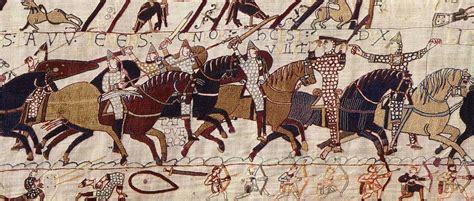

Happy Battle of Hastings day to all who celebrate/mourn
#battle of Hastings#history#British history#Norman conquest#William the conqueror#Harold Godwinson#1066#today in history#I'm still mourning
11 notes
·
View notes
Text

I feel like conquering England.
#1066#duolingo#norman conquest#milestone#i think it's funny how the week counter stopped at 4#my unbroken streak started last july#15 months ago#i mean yeah 60+ is technically more than 4 but still
8 notes
·
View notes
Text
the way that in life he was known as william the bastard but we remember him as william the conqueror
#say what you will about what his did the scottish and the english i will admit that wasn’t very cash money#but round of applause for william im sure his parents are proud of him#william the conqueror#norman conquest
3 notes
·
View notes
